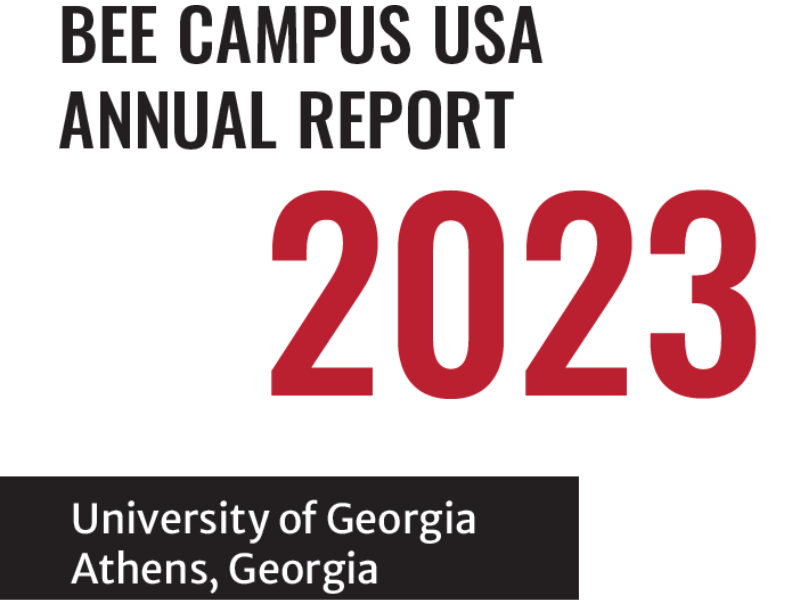UGA is committed to Protecting pollinators and their habitats
Pollinators provide humans with approximately one out of every three bites of food that we eat (scientists estimate based on 35 percent of the world’s food crops depending on pollinators to reproduce) Three-fourths of all the world’s flowering plants depend on pollinators. Protecing pollinators, and their habitats, is essential to ensure a secure future and dependable food supply. UGA strives to model pollinator friendly practices and habitats through our certification as a Bee Campus USA by the Xerces Society (read our annual report below). UGA’s pollinator protection initiatives support healthy pollinator habitats through interdisciplinary research, education, outreach, and campus operations.








